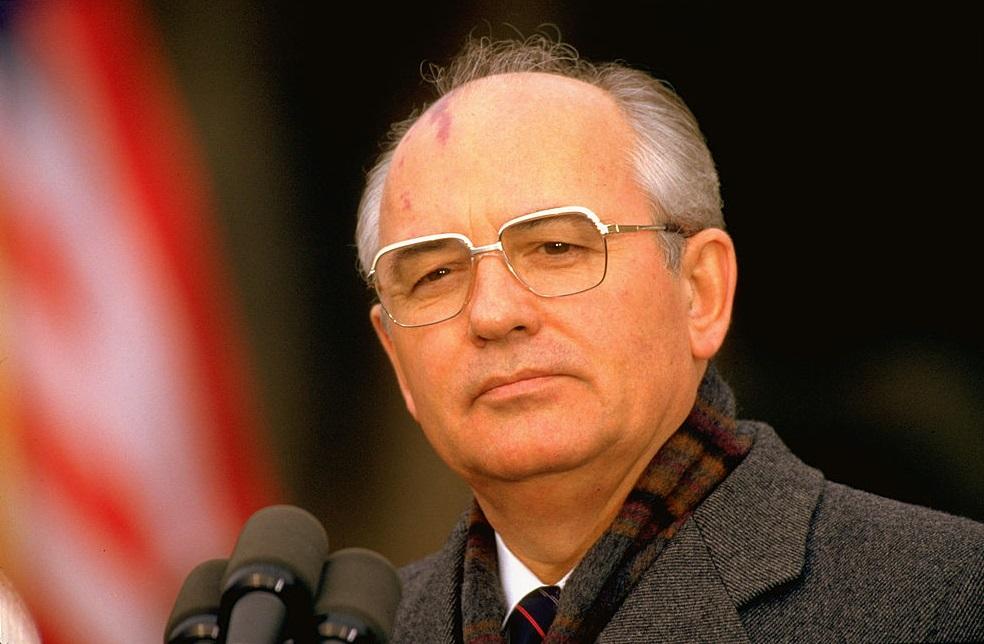Gorbachev changed the world
Posted By Graeme Dobell on August 31, 2022 @ 15:00

Great powers don’t die in bed, the realist judgement goes. Empires fall amid flames and war.
Not so, answered Mikhail Gorbachev, proving his greatness by achieving the gentle end of the Soviet Union.
Gorbachev’s achievement was to look beyond the glory and guns to pronounce the edifice hollowed and ailing. The USSR was as poor as it was powerful.
Gorbachev’s intellect and will meant he wasn’t seeking an end to Russia’s role as a great power. But having risen to the peak of the Soviet system, he acted on the truth he knew deeply: the system wasn’t working. He did what apparatchiks seldom dream of—he attacked the fundamentals of the machine that made him.
The changes Gorbachev set running went further and faster than he’d foreseen. His feat was to reach a place he never intended to go. He died as a man with little official honour in his own land. Yet Gorbachev’s role marks him as one of the great leaders of the 20th century. His was a triumph of humanity and intelligence.
Mikhail Gorbachev ended the Cold War.
Stating it simply merely underlines the magnitude of what this leader did.
A peaceful end was something that those of us who trekked through cold decades of nuclear peril hoped for but had a hard time imagining.
Gorbachev joined hands with US President Ronald Reagan in a leap of imagination. They changed course and changed history. The USSR’s role was the more important because its leader was prepared to surrender so much.
On the simple calculus of power, the US won and the Soviet Union died. But the end was peaceful.
Gorbachev’s choices and the surprises that followed could be seen as the end of history [1]—a resolution of the great arguments about the nature of liberty and the best form of government. The last great war had wrapped the world in Cold War, fuelling proxy conflicts across the globe, dividing the international system along ideological lines. And then it ended.
The speed of it was extraordinary.
In 1985, Gorbachev became the last general secretary of the Soviet Union. By 1989, the Berlin Wall fell. In December 1991, amid chaos, Gorbachev resigned as president of the Soviet Union. His final letting go as president echoed how much else he had already let go.
For Gorbachev, the wild ride took only six years. A relative blip of time changed history. The great lesson is that in geopolitics, a mountain can turn into an avalanche.
Come down the time tunnel to see how some of that felt.
In the 1980s, I worked as a correspondent in Europe, so I was writing my way around the foothills of that slow-motion superpower struggle. The ideological competition framed by nukes had always been a fact of my life—a seemingly permanent reality.
See that nuclear knife-edge in the war that nearly engulfed Europe in 1983, when NATO conducted operation Able Archer [2] simulating a nuclear attack. The Soviet politburo feared a genuine nuclear strike, as Reagan acted on his own bellicose rhetoric. Soviet nukes were readied and forces in East Germany and Poland went on alert.
A NATO exercise and fearful old men in the Kremlin took the world to the brink of nuclear war in 1983, yet none of us knew. When that horror story was declassified decades later, I reflected that I’d been living in London at the time with my wife and young family. We’d have been casualties of a catastrophic misunderstanding.
Gorbachev’s chance for power came as all those old men atop the Soviet Union tottered to their ends and died. One of the diplomatic motifs of the early 1980s was when Radio Moscow would scrap all programs and start playing hours of funereal music. The dirges set the scene for three leadership deaths: Leonid Brezhnev in 1982, Yuri Andropov in 1984 and Konstantin Chernenko in 1985.
The sclerotic Soviet system was symbolised by those old general secretaries. Then came a relatively young man who wanted to change the Soviet Union.
After her first meeting with the soon-to-be leader, in December 1984, British Prime Minister Margaret Thatcher famously pronounced: ‘I like Mr Gorbachev. We can do business together [3].’ And what a business it became.
As The Economist judged [4]:
He did not mean the Soviet Union to die like that. The man who ended the cold war, who changed the course of 20th-century history, was neither a dissident nor a revolutionary. He intended to reform the Soviet Union, not destroy it. But his aversion to violence and his belief in the Enlightenment were enough to finish a system held together by repression and lies.
Nations seldom erect statues to leaders who peacefully dismantle empires and let go of lots of territory. That’s why it’s vital to see the achievement in what Gorbachev did.
He took the world a long way back from the nuclear edge and set many free. He gave Russia a chance to think differently about what it meant to be a great nation.
Gorbachev is proof that leaders always matter. Great leaders can do great things. Look at the leader Russia has today to see a nasty and dangerous version of what a leader can impose.
Vladimir Putin rejects all that Gorbachev did.
One man started a war. The other, much better man ended the Cold War that defined the second half of the 20th century.
Article printed from The Strategist: https://aspistrategist.ru
URL to article: /gorbachev-changed-the-world/
URLs in this post:
[1] end of history: https://www.theguardian.com/books/2014/mar/21/bring-back-ideology-fukuyama-end-history-25-years-on
[2] Able Archer: https://www.wilsoncenter.org/event/able-archer-83-the-secret-history
[3] We can do business together: https://www.margaretthatcher.org/document/105592
[4] judged: https://www.economist.com/obituary/2022/08/30/mikhail-gorbachev-has-died
Click here to print.